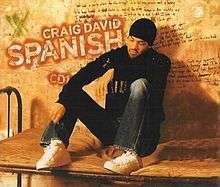Igo
Igo may refer to:
People

Go (game)
Go (traditional Chinese: 圍棋; simplified Chinese: 围棋; pinyin: ![]() wéiqí; Japanese: 囲碁; rōmaji: igo; Korean: 바둑; romaja: baduk; literally: "encircling game") is an abstract board game for two players, in which the aim is to surround more territory than the opponent.
wéiqí; Japanese: 囲碁; rōmaji: igo; Korean: 바둑; romaja: baduk; literally: "encircling game") is an abstract board game for two players, in which the aim is to surround more territory than the opponent.
The game originated in ancient China more than 2,500 years ago, and is one of the oldest board games played today. It was considered one of the four essential arts of a cultured Chinese scholar in antiquity. The earliest written reference to the game is generally recognized as the historical annal Zuo Zhuan (c. 4th century BC).
There is significant strategy involved in the game, and the number of possible games is vast (10761 compared, for example, to the estimated 10120 possible in chess), displaying its complexity despite relatively simple rules.
The two players alternately place black and white playing pieces, called "stones", on the vacant intersections ("points") of a board with a 19×19 grid of lines. Beginners often play on smaller 9×9 and 13×13 boards, and archaeological evidence shows that game was played in earlier centuries on a board with a 17×17 grid. By the time the game had spread to Korea and Japan in about the 5th and 7th centuries CE respectively, however, boards with a 19×19 grid had become standard.

Igo (singer)
Rodrigo Fomins better known by the stage name Igo (born 29 June 1962, Liepaja, Latvia) is Latvian singer, poet and composer of rock and other music styles.
Biography
His mother is Irina Tīre, an artist and photographer, whilst his brother, Ivo Fomins, is also a singer.
Igo studied playing the violin, and is a singer and producer. One of the most popular singers in the 1980s, he was lead singer for Latvian bands Corpus, Livi and Remix and in the jazz quartet Liepājas kvartets.
In 1986, Igo won the Grand Prix during The Soviet Young Singers Competition known as "Jūrmala-86" with the song "Грибной дождь" and took part in the TV festival "Song of the Year" in Moscow with "Путь к свету" (composed by Raimonds Pauls and Ilya Reznik) as well he got a 2nd Place and The Audience Main Prize in The International Singer Festival "Man and sea" in Rostock.
In the beginning of the independence recovery stage of Latvia, in the year 1988 Igo performed the role of Lacplesis by the workbook of Māra Zālīte, in the rock opera "Lāčplēsis" by Zigmars Liepiņš.
Spanish
Spanish may refer to:
Spain
- Spanish people (or Spaniards), an ethnic group
- Spanish language, a Romance language
- Spanish dialects, variants of the Spanish language
- Spanish cuisine, traditional foods
- Spanish mythology, traditional religion
- The Spanish Empire, the empire administered by Spain from the 15th century
- Spanish dialects, variants of the Spanish language
Ontario
Other

Spanish (song)
"Spanish" is the fourth UK single from Craig David's second album Slicker Than Your Average. The song became his tenth top ten hit in the UK (including his Artful Dodger collaborations), peaking at number eight and spending six weeks inside the UK Top 75. "Spanish" saw David incorporate a Spanish element into his music for the first time including on the track Spanish rapper Duke One . In Australia "Spanish" was skipped and "World Filled with Love" was released as the fourth single there.
Music video
The video was directed by directing team Calabazitaz.
Formats and track listings
UK CD: 1
UK CD: 2
Chart performance
The single charted and peaked at number eight on the UK Singles Chart.
References
External links

Spanish language
Spanish (![]() i/ˈspænɪʃ/, español), also called Castilian (
i/ˈspænɪʃ/, español), also called Castilian (![]() i/kæˈstɪliən/,
i/kæˈstɪliən/, ![]() castellano ), is a Romance language that originated in the Castile region of Spain and today has hundreds of millions of native-speakers across the world.
castellano ), is a Romance language that originated in the Castile region of Spain and today has hundreds of millions of native-speakers across the world.
Spanish is a part of the Ibero-Romance group of languages, which evolved from several dialects of common Latin in Iberia after the collapse of the Western Roman Empire in the 5th century. It was first documented in central-northern Iberia in the 9th century and gradually spread with the expansion of the Kingdom of Castile into central and southern Iberia. Beginning in the early 16th century, Spanish was taken to the colonies of the Spanish Empire, most notably to the Americas, as well as territories in Africa, Oceania and the Philippines.
From its beginnings, Spanish vocabulary was influenced by its contact with Basque, as well as by neighboring Ibero-Romance languages, and later it absorbed many Arabic words during the Al-Andalus era in the Iberian Peninsula. It also adopted words from non-Iberian languages, particularly the Romance languages Occitan, French, Italian and Sardinian, as well as from Nahuatl and other Indigenous languages of the Americas.
Podcasts:

